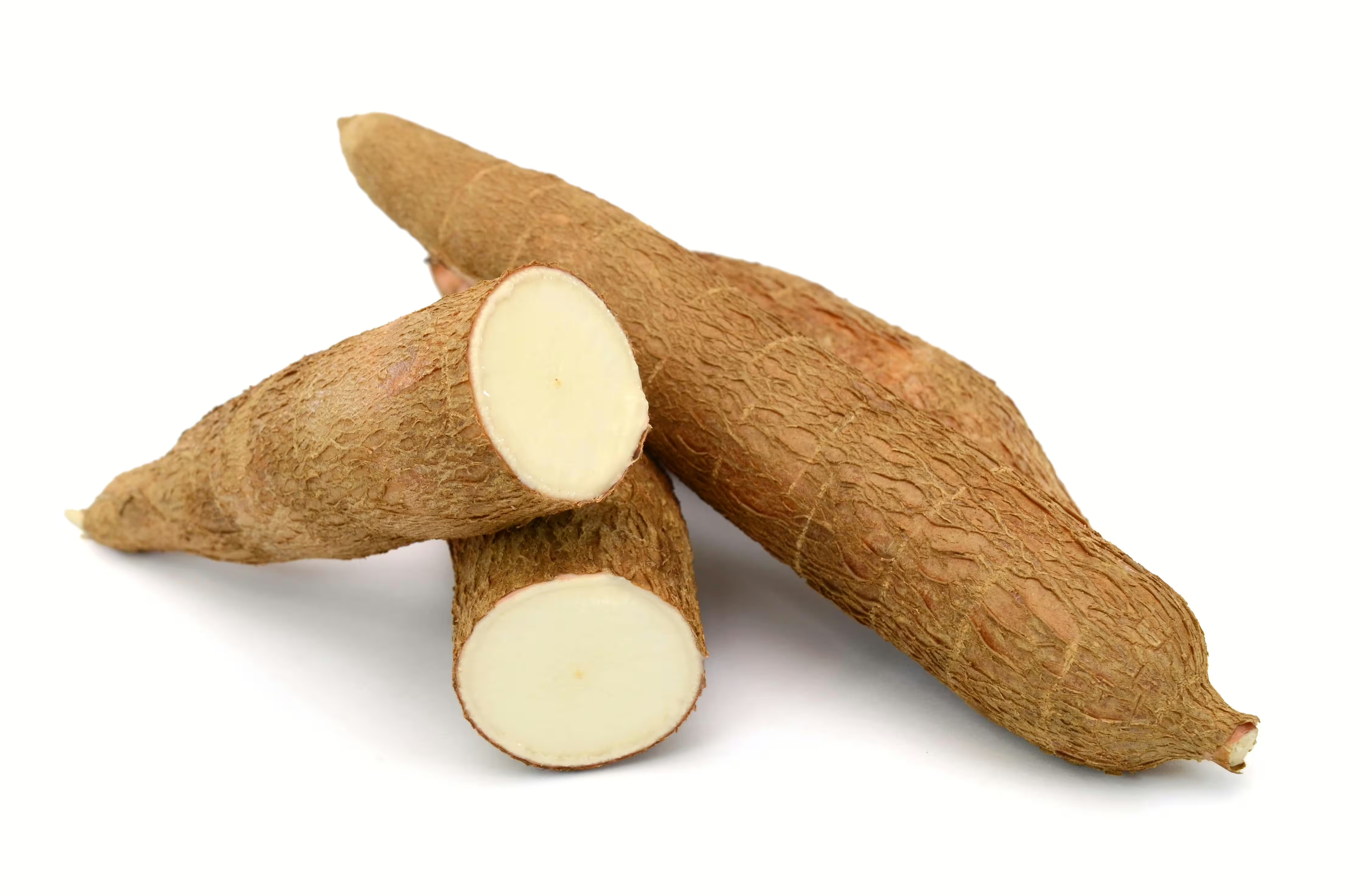Cassava, also known as Cassave, is a tropical herbaceous plant known for its edible roots. Cassava is a very nutritious plant, rich in complex carbohydrates, dietary fiber and essential vitamins and minerals. Its roots are particularly rich in vitamin C, manganese and folic acid. Cassava can be used in different ways in the kitchen, especially in the form of starchy food, flour or puree. It is often used as a basis for many dishes, such as soups, simmered dishes and gratins.
